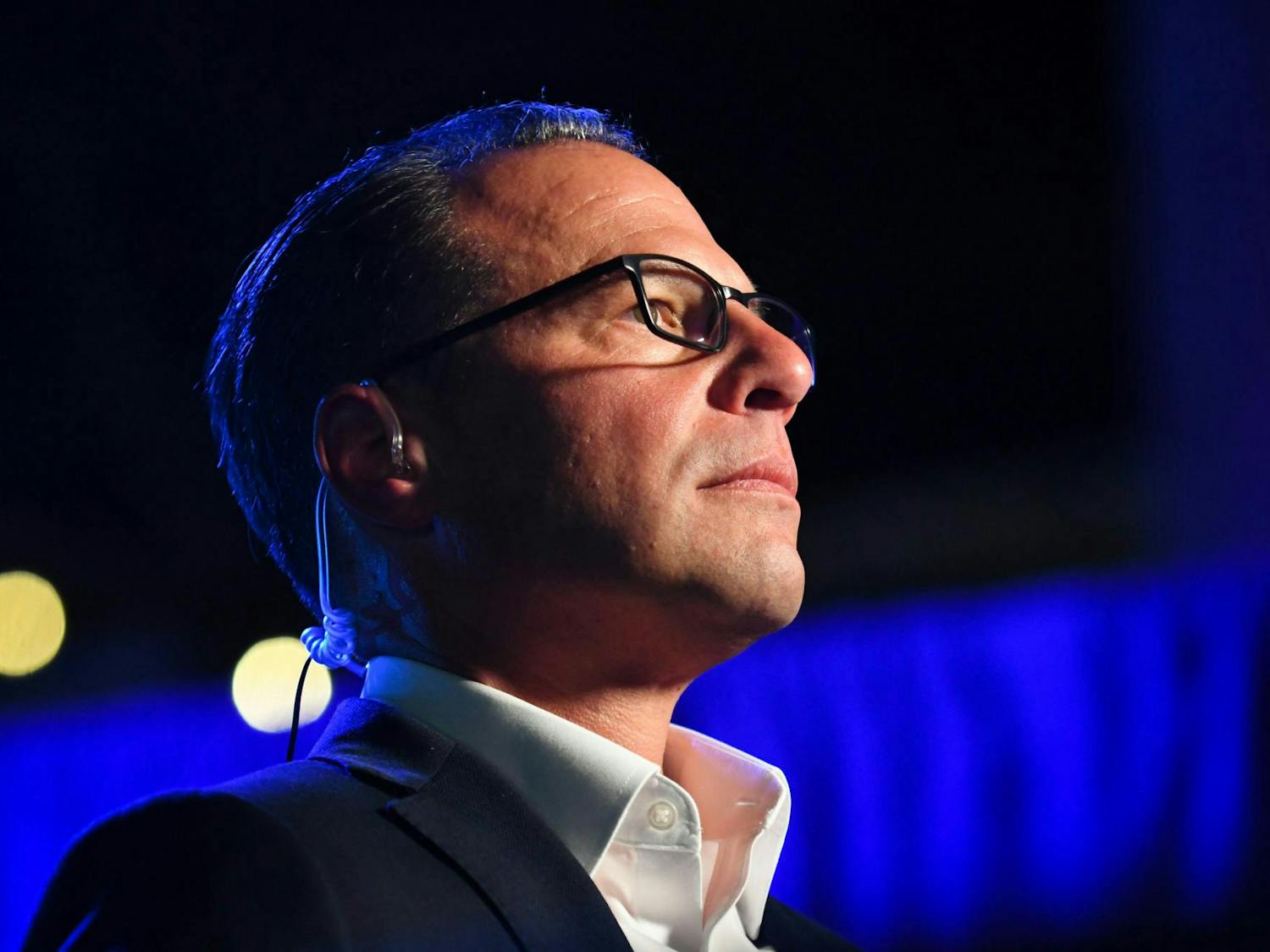Many speakers fueled the controversy. City Council President John Street is known throughout Philadelphia for being outspoken on many issues. Even so, some people were surprised when, at last week's Council hearings over a proposed, Penn-backed ordinance regulating University City vending, Street tore into a vendor during his testimony against the bill. The ordinance, which Council will likely approve tomorrow, would ban vending from many streets and sidewalks around campus. Separately, the University is building five food plazas to hold many of the vendors. One of the most contentious moments of the eight-hour hearings last Tuesday in City Hall came during the testimony of Dean Varvoutis, the owner of the two popular Magic Carpet Foods carts that sell vegetarian cuisine near campus. Varvoutis said that by enacting the ordinance, Council would be taking away his livelihood. He also pointed out his 11-year-old son sitting nearby, who he said he had brought to observe "the democratic process." During the testimony, Street told Varvoutis that neither he nor other vendors should be "depending on [vending] for the long term." Street, who used to be a hot dog vendor on Temple University's campus in North Philadelphia, cited his own life story as an example. "I knew if I wanted to take care of myself and my family I needed to find something else [to support me]," Street said, describing his decision to enroll in Temple Law School. Matthew Ruben, spokesperson for the Penn Consumer Alliance -- one of the two ad hoc groups formed in response to the University's initial ordinance proposal last May -- said he thought what Street did was "unethical" and "disgusting." "It's certainly something that Dean won't forget and I won't forget either," Ruben said. But Varvoutis said he was not upset over Street's outburst, which "entertained" him. "The whole thing was orchestrated," he said. · Among the 50 people who testified at the hearings, two claimed that they represented the views of the student body. The problem is that one of those people spoke in favor of the ordinance, while the other spoke against it. Former Undergraduate Assembly Chairperson Noah Bilenker told Council that the student body was opposed to the ordinance because it would move vendors off of Walnut Street. A few hours later, new UA Chairperson Bill Conway -- elected at 1 a.m. that morning -- testified in favor of the bill, saying that "students are willing to walk perhaps an extra block to go to a vendor." The last UA, on whose executive board Conway served as treasurer, passed a resolution in February calling for City Councilwoman Jannie Blackwell to withdraw the ordinance. UA member and College junior Samara Barend, the former UA vice chairperson, said Conway's decision to support the bill "undermines the legitimacy" of the UA. "The only way for the UA to be effective is to make stands with the knowledge of that's what the student body thinks, not what one person or a small group of people think," said Barend, a Daily Pennsylvanian columnist who lost a three-way election for chairperson. But Conway, a College sophomore, defended his testimony. "I'm a 'no-bullshit' chair," Conway said. "I wanted to show the undergraduate population that I'm not going to try and dodge these controversial issues." And Bilenker, a College junior, said his and Conway's positions "weren't as different as they seemed," adding that he was more critical of how the University negotiated changes to the ordinance and food plaza plans. Both Bilenker and Conway stressed that they each represented a different UA. · Coincidence or conspiracy? That was the question many people at the hearings were asking about the University's decision to start construction on the first food plaza April 13, the day before the hearings. The long-delayed construction meant that administrators could show Council members that the University was indeed building the plazas. Ruben said this occasion would not be the first time the University acted suspiciously. "On February 9 the administration promised the Van Pelt [Library] plaza would be built and then three hours after the ordinance was introduced [on February 12], they announced they weren't building it," Ruben said. "A reasonable person could be forgiven for thinking [the University] acted opportunistically throughout the process." But Carol Scheman, Penn's vice president for government, community and public affairs, denied there was any conspiracy on the part of the administration. "It was on the agenda for as soon as possible and that was as soon as possible," Scheman said. "Part of the problem with conspiracies is that there's no one smart enough to carry them out." · During the hearings, opponents of the ordinance hoped to sway Council members by holding up signs with a variety of messages during the testimony of many witnesses. When members of the University administration and other supporters of the ordinance testified, critics held up signs saying "lies." Other signs had messages such as "Penn students support vending" and "Save the vendors." But Council members said the signs did not have much of an effect on them. "I thought it was a very interesting and dramatic tactic," at-large Councilwoman Happy Fernandez said. "In the end, it's my job to sort through the facts and the signs didn't have any effect on me doing that." And at-large Councilman Frank Rizzo said the signs were "very creative and better than an oral outburst." "But ultimately it didn't influence me," he said.
The Daily Pennsylvanian is an independent, student-run newspaper. Please consider making a donation to support the coverage that shapes the University. Your generosity ensures a future of strong journalism at Penn.
Donate







